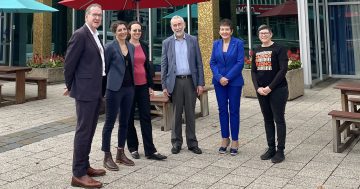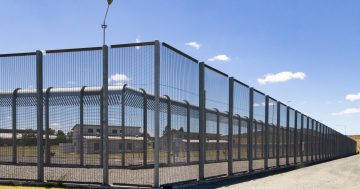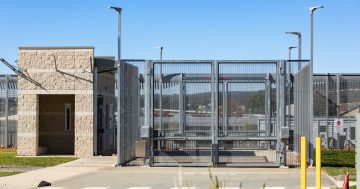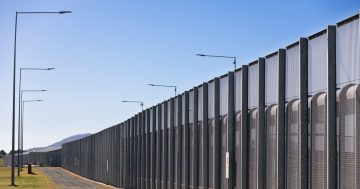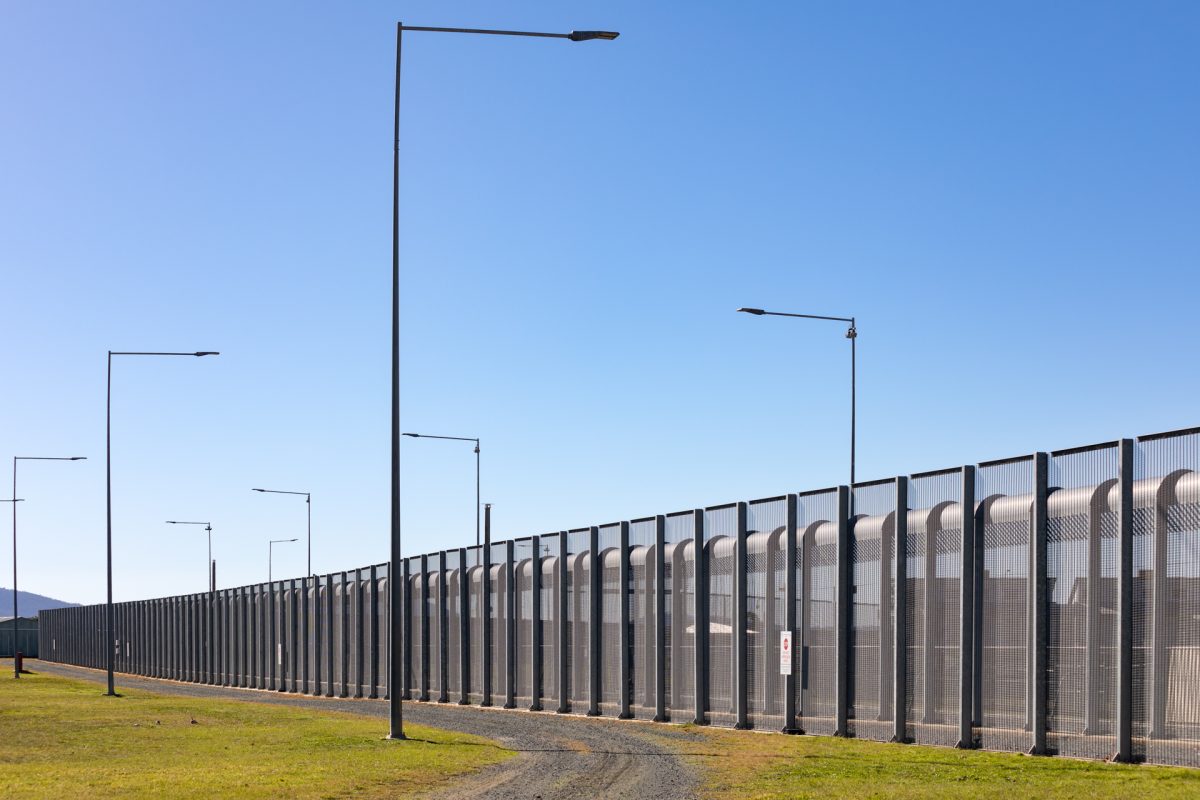
The Alexander Maconochie Centre. Breaking the cycle of incarceration for many prisoners would be profound. Photo: Michelle Kroll.
In the shadows of the election, the ACT Government has announced two initiatives that it hopes will not only make the community safer but rein in the population of the Territory’s jail and the costs associated with supporting it.
Attorney-General Shane Rattenbury launched the second phase of the government’s Justice Reinvestment program, which will focus on early intervention and diversion, the goal being early intervention when offenders are at greatest risk (which could be through health and education assistance) and supporting people exiting prison so they didn’t return (through housing support).
Mr Rattenbury revealed a telling statistic – that the cost of housing someone at the Alexander Maconochie Centre for a year was $198,000. Do the crime, do the time may be a catchy phrase but the reality is simply sending people to jail again and again is not only failing to deter criminal behavior but is also not sustainable.
The idea of Justice Reinvestment – spending money on programs to keep people out of jail and reap a fiscal as well as social dividend – has its roots in conservative Texas where the soaring cost of incarceration was getting out of hand.
Measures already introduced have reduced recidivism by almost 20 per cent since 2018, and the government is committed to continuing on this path to working with organisations and the community to tailor programs that will deal with the underlying causes of crime and offer support to people so they do not go back through the revolving prison door.
Police will say that the AMC is filled with regular offenders who are well known to them and, tragically, as time goes on, their children. Breaking this cycle of behaviour in a small jurisdiction like the ACT would have profound effects.
The other announcement was the decision to join the rest of the country in introducing electronic monitoring of people wearing trackable ankle bracelets while on bail, parole and community orders.
The Canberra Liberals had already promised to do this for serious offenders on bail out of concern at offences committed while people are free awaiting their hearing or trial.
But it’s the number of unsentenced detainees, including those awaiting trial, in the AMC that is alarming – a little less than half (46.5 per cent) of the total prison population at 30 June 2023. The ACT has the highest rate of people on remand of all Australian jurisdictions.
If electronic monitoring can provide some assurance to the community that alleged offenders can still be free but under sufficient surveillance to minimise any chance of potential reoffending, that not only satisfies the presumption of innocence but eases pressure on the jail.
At the other end, electronic monitoring offers an opportunity to parole people safely and provide interventions to prevent reoffending.
The government is fully aware that for some offenders and offences, justice needs to be served in the form of appropriate penalties and the community needs to be protected.
But there is much to be gained by pursuing policies and practices that keep people out of prison – even if the main appeal will be to people’s hip pockets.













